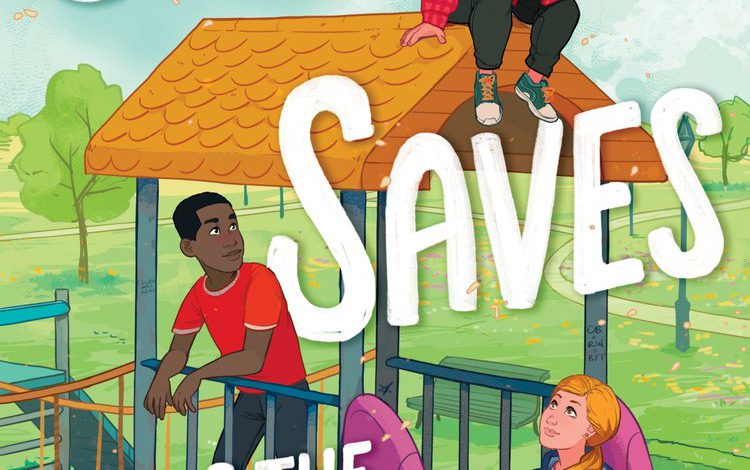Because Ronnie Riley believes that no one should feel alone for who they like or who they are, this nonbinary, neurodivergent author writes a book for tweens who might also need a safe place to discover themselves. Riley’s novel, Jude Saves the World features Dallas Knight, who is gay, and Jude Winters, who is nonbinary and lives with attention deficit hyperactivity disorder (ADHD). The two twelve-year-olds share a “ride or die” friendship. When they welcome Stevie Morgan into their circle, challenges ensue.
Another challenge for Jude—whose pronouns are they/them—is whether to share their identity with their grandparents. Jude’s mom says they’re not ready for that news. Jude is not just nonbinary but smart, hardworking, and kind.
Jude’s favorite thing is to wander through the shelves at the Aberdeen Falls Library. Having foggy days creates a challenge for Jude, who considers it weird to not be able to control one’s own brain. “I just feel lost and confused a lot” (13). The challenge means a struggle with school, and it sometimes makes Jude feel incompetent and broken: “like something’s wrong with me [because] my brain just doesn’t work like everyone else’s” (200).
Jude is convinced that a Safe Space needs to exist where people with differences can find unconditional acceptance. The Rosedeen Safe Space would be “like a support group, an activist group, and a friendly hang group” (113) where marginalized people feel welcome, safe, and free to gather. Its mission would be “to promote acceptance and provide a safe support group for marginalized people who share a common vision of social equality and equity” (157). So, they approach the librarian about their idea. In the organizational process, they learn about Marsha P. Johnson, an activist who said: “No pride for some of us without liberation for all of us” (158).
From Jude and Dallas, readers recognize that “People are afraid of what they don’t know. And people react poorly when they’re scared” (58). We also gain information about perspectives and how we may assign someone a gender that makes sense to us without really considering how that assignment or our expectations might make that individual feel. On this topic, Jude says: “I don’t need ‘help’ or therapy. I know who I am. And who I am doesn’t fall in the gender binary” (194). Although labels can give us a sense of community or a framework, they can also be limiting and box us in. Perhaps the most liberating fact is that when we are presented with new information, we can change our minds. Riley’s book reminds us that educating ourselves on lives that are different from our own is important and necessary.
- Posted by Donna

